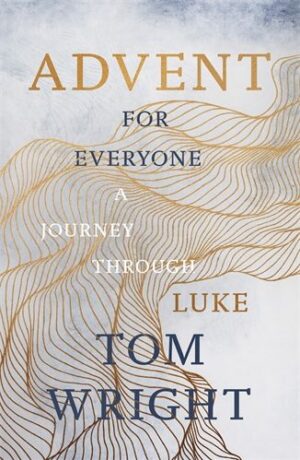



Woes against the Pharisees: Luke 11.42–54
‘But woe betide you Pharisees!’ Jesus continued. ‘You tithe mint and rue and herbs of all kinds; and you have side- stepped justice, mercy and the love of God. You should have done these, without missing out the others.
Woe betide you Pharisees! You love the chief seats in the synagogues and greetings in the market-places.
‘Woe betide you! You are like hidden tombs, and people walk over them without knowing it.’
45 At this, one of the legal experts spoke up. ‘Teacher,’ he said, ‘when you say this you’re insulting us too!’
‘Woe betide you lawyers, too!’ replied Jesus. ‘You give people heavy loads to carry which they can hardly bear, and you yourselves don’t lift a finger to help.
47 ‘Woe betide you! You build the tombs of the prophets, and your ancestors killed them. 48So you bear witness that you approve of what your ancestors did: they killed them, and you build their tombs.
49 ‘For all this, God’s Wisdom says, “I’m sending you prophets and ambassadors; some of them you will kill and persecute”, 50so that the blood of all the prophets shed ever since the beginning of the world may be required from this generation – 51from the blood of Abel to the blood of Zacharias, who died between the altar and the sanctuary. Yes, let me tell you, it will all be required from this generation.
‘Woe betide you lawyers! You have taken away the key of knowledge. You didn’t go in yourselves, and you stopped the people who were trying to go in.’ He went outside, and the scribes and Pharisees began to be very threatening towards him. They interrogated him about several things, 54lying in wait for him to catch him in something he might say.
The tennis player came grumpily into the television interview room. He had just lost a vital match in the Wimbledon men’s singles tournament, the premier tennis event of the year. He was tired and cross. Worse: in the course of the game, screened on live television, he had lost his temper and sworn at the umpire. It had not been a good day.
The interviewer was more interested in the swearing than in the tennis. Wasn’t he sorry now, he asked, for what he had said?
The tennis player rounded on him.
‘Are you perfect?’ he demanded.
There was a confused splutter from the (unseen) interviewer, caught between the outrageous claim to perfection and the unthinkable admission that he, too, was human.
‘Then shut up!’ retorted the player, having made his point.
The incident itself became briefly more important than the tennis. The player had broken a law which, although unwritten, had been assumed by many in the media. He had been rude to a journalist.
Who are the Pharisees in today’s society? Who are the lawyers who load heavy burdens on to people’s backs but don’t themselves lift a finger to shift them? When I was younger, passages like this used to be applied to religious teachers. Some people, we were told, insist on all kinds of religious observances. You should fast on Fridays, you should kneel down and stand up at the right points in church, you should cross yourself. You should earn as many celestial good marks as you could. Or, perhaps, you shouldn’t play cards, you shouldn’t wear make-up, you shouldn’t go to the theatre. You should read your Bible every day. Either way, we were told, people who taught such things tried to make you focus on the things you did, rather than calling you simply to believe and trust God for your salvation.
Well, that sort of teacher does sometimes look like a kind of modern Pharisee. But there are two problems with that as the interpretation. First, the real Pharisees – the flesh-and-blood first-century Jewish Pharisees – weren’t in fact very much like that at all. They held what we would call a strong political belief, backed up with religious sanctions: their rules were designed to make people keep the Jewish law as best they could, so that Israel would be made holy, and thus God would bring in the kingdom. The lawyers weren’t trying to set up complex systems as hoops for people to jump through to make sure they were saved; they were trying to codify as much of the Jewish law as they could, working out more and more complex possibilities of situations that might arise when one would need to know what was the right thing to do. Neither of these corresponds very closely to forms of Christian teaching, even degenerate forms, in the modern world.
Second, the Pharisees were a pressure group in what we would call the social and political sphere. They were far more like a group in society who take it upon themselves to urge people to obey particular codes: like those, for instance, who insist upon various ‘green’ policies for the disposal of rubbish. We may agree with the policies, but the point is that these aren’t simply ‘religious’ duties in the old sense. And in particular, at least in the Western world where the press is relatively free, there are many whole newspapers, as well as individual journalists, who take it upon themselves to be the guardians of public morality. They will shriek in mock-horror at all kinds of offences, and take delight in pointing the finger at the rich and respectable. But at the same time many of the journalists who make a living by doing all this are by no means shin- ing examples of moral virtue. In some cases they are the ones who load heavy burdens on people’s backs but don’t themselves lift a finger to move them.
Now clearly this only goes a little way towards explain- ing what’s going on in this passage, but it’s important to loosen ourselves up, away from an older interpretation that sees the Pharisees as simply ‘religious leaders’ in the sense we mean it today, and so to get out of our minds any idea that Jesus’ solemn denunciation of them was sim- ply what we might call ‘religious polemic’. Jesus saw very clearly that there were many self-appointed teachers in the world of first-century Judaism who were using their learn- ing partly for their own status and partly for their own political ends. And he, for whom learning and devotion were matters of love for God and for all people (as the best of the Pharisees would have agreed), saw that there was a choice facing the Israel of his day.
It wasn’t a matter of either following millions of petty rules or of a pure, uncluttered religion of love and grace. It was a matter of an agenda which focused on the law as the charter of Israel’s national life, on the one hand, and an agenda which demanded repentance, turning away from Israel’s headlong flight into national rebellion, politically against Rome and theologically against God. There could be no compromise.
When Jesus announced these quite formal ‘Woes’, then, he wasn’t simply saying he disliked such attitudes – the detailed outward observance that left the heart untouched, the piety that boosted self-importance, the pollution that appeared as clean and wholesome. It wasn’t simply that he happened to disapprove of the objectionable practices of these other groups. It was, rather, that he could see where they would lead: to a terrible conflagration in which the present generation would pull down on its own head the pent-up devastation of the centuries.
‘Scribes’ refers literally to people trained in writing legal documents; it overlaps quite closely with ‘lawyers’. They believed that Israel’s law, the Torah, should be applied to every area of life, and so combined in themselves the modern roles of ‘lawyer’ and ‘religious teacher’, and much besides. It is small wonder that such people took offence at what Jesus was saying. If he was right, their entire pro- gramme was based on a huge mistake. If they were right, the mistake was his. The fierce opposition between them continues on and off right through to the final showdown in Jerusalem. For Luke, continuing the story of Jesus’ journey towards his coming death, the warnings to the cities
(10.13–15), the battles with the demons at several points, and the controversies with these opponents, all form part of Jesus’ profile. Jesus is not simply going to Jerusalem to teach. He is going there to bring to its head his whole message of God’s justice and peace: a message which cut across much that passed for traditional teaching, a message which could not but prove fiercely controversial.
What are the unjust and oppressive human agendas that the gospel of Jesus confronts in the world today?
How can Christians be more effective in naming and combatting them?